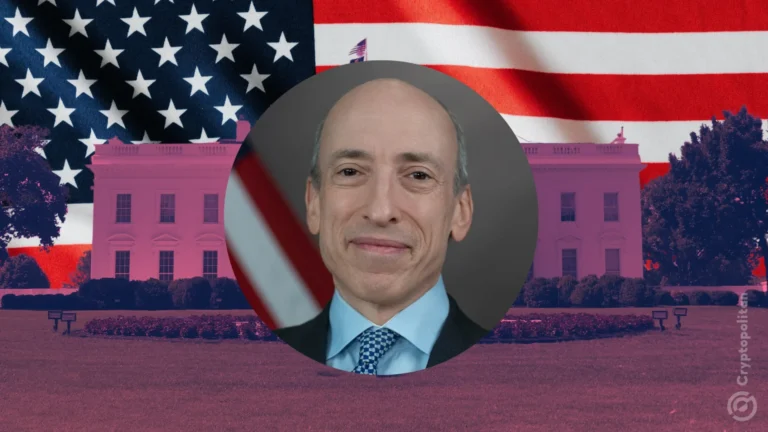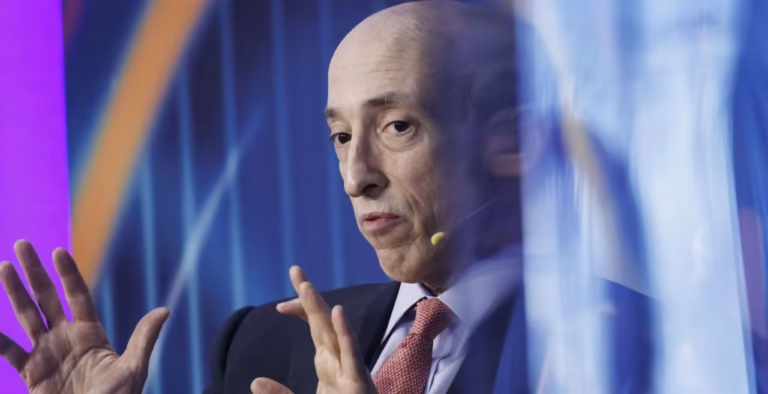The crypto world is buzzing with mixed reactions to the news that a Wall Street lawyer, Richard Farley, might replace Gary Gensler as the head of the SEC (Securities and Exchange Commission) under Donald Trump’s administration. The SEC is a key regulatory body that has the power to influence how cryptocurrencies are treated in the U.S. financial system. This news is important because whoever takes charge will shape the future of crypto regulations, affecting its growth, risks, and opportunities.
Why This Matters to You
As someone interested in cryptocurrency, understanding the political landscape around it is crucial for making informed decisions about your investments and understanding its long-term potential. A change in leadership at the SEC could signal either positive or negative changes for crypto, and staying on top of these developments will help you prepare for whatever direction the market may take. So, what’s all the hype about?
Key Players and Opinions
Richard Farley, a partner at a prominent law firm (Levin Naftalis and Frankel), has been rumored as a top candidate for the SEC chair. His background is in traditional finance, which has led to mixed reactions. Some crypto advocates worry that his traditional finance focus might result in anti-crypto policies, similar to the stance taken by the current SEC chair, Gary Gensler, who is known for his skepticism toward digital currencies.
The Divided Views
- The Negative Side: Adam Cochran, a partner at a venture capital firm, strongly opposes Farley’s potential appointment. He argues that Farley’s background in banking law, especially his association with influential finance figures, could lead to policies that hurt the growth of crypto. Cochran prefers candidates like Chris Giancarlo, known as “Crypto Dad,” or SEC Commissioner Hester Peirce, aka “Crypto Mom,” both of whom are seen as more crypto-friendly. Cochran believes Farley’s nomination could be disastrous for crypto’s future.
- The Positive Side: On the other hand, economist Timothy Peterson sees potential in Farley’s regulatory experience. Peterson argues that while Farley is rooted in traditional finance, his approach to regulation emphasizes a balance between fostering innovation (like cryptocurrencies) and maintaining market stability. This could lead to clearer, more thoughtful frameworks for regulating crypto, which might help the industry grow while preventing excessive risk-taking.
The Importance of This Shift
Why does this matter to you as someone interested in cryptocurrency? Because regulatory changes can either create a safer environment for investors or put up barriers that make crypto harder to access. If the SEC adopts clear, favorable rules for crypto, it could lead to increased adoption by both retail and institutional investors. On the other hand, if the new SEC chair adopts a more restrictive approach, it could stifle growth and innovation in the sector.
Key Takeaways for You
- Crypto Regulation: The SEC plays a huge role in regulating cryptocurrencies in the U.S. Understanding who leads it is important, as their policies could directly impact crypto’s future.
- Know the Players: Keep an eye on the key figures mentioned—Farley, Giancarlo, Peirce, and others. Each one represents a different approach to crypto regulation.
- Impact on Your Investments: Understanding how changes in SEC leadership could affect the market helps you make more informed investment decisions, whether you’re buying, holding, or trading cryptocurrencies.
What’s Next?
Trump’s presidency might bring changes to the SEC’s leadership, and depending on who takes over, it could either be a turning point or a roadblock for the crypto industry. Keep track of these developments—they could shape the landscape for crypto for years to come, influencing everything from regulation to market stability. Being informed means being prepared.
By staying up-to-date with these changes, you can better understand how the regulatory environment affects your crypto investments and strategy, and possibly even anticipate shifts in the market.



